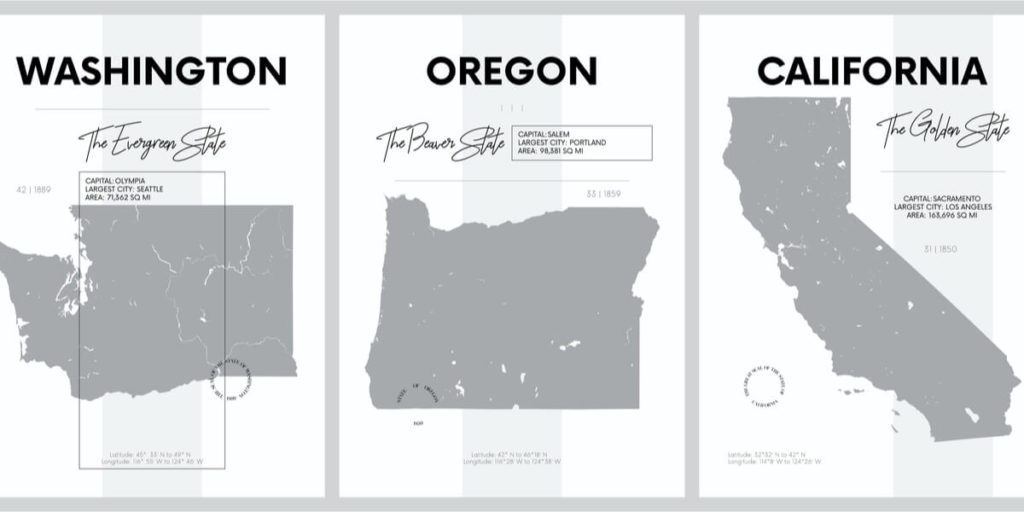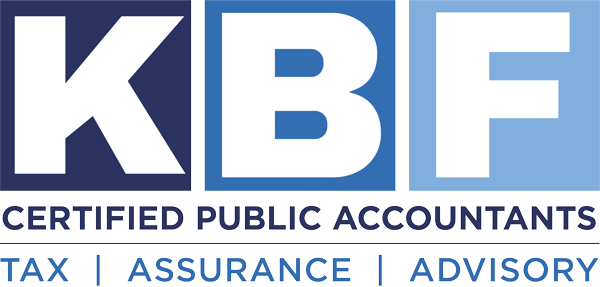Working remotely has become the new normal for many employees on the West Coast. Although many employees enjoy the convenience of working remotely, both employees and employers need to consider the tax implications of having employees working in states where the business previously had no presence. For employees who reside in one state but are employed in a neighboring state, working remotely could result in a higher than expected tax bill in their resident state, which could lead to penalties. For employers, having employees working in states other than the business’s home state could unintentionally trigger income or sales tax nexus. Oregon, Washington, and California have begun issuing guidance for employers and individuals affected by COVID-19.
Oregon
Individuals:
Little guidance has been released for individuals working remotely in Oregon. However, that does not mean that employees should ignore the effects of their new working arrangements. For example, a taxpayer’s resident state usually taxes all their income, regardless of where it is earned. When a taxpayer works in more than one state during the year, the taxpayer must allocate their income to the respective state in which it was earned. The taxpayer will be entitled to claim a tax credit for income tax paid to another state, which reduces their taxes payable on their resident state return. Thus, if a taxpayer normally works in a different state than their resident state, they could incur penalties for not making sufficient tax payments in their home state because they will no longer be receiving a state income tax credit from the state where they normally work. Taxpayers should make sure they have changed their withholding requirements to ensure they do not incur penalties.
Corporate Activity Tax
The Oregon Department of Revenue has offered relief for businesses that owe Corporate Activity Tax (CAT). The Department has stated that it will not assess penalties on businesses that either make a good-faith effort to comply or demonstrate that they do not have the financial ability to make estimated payments. To demonstrate a good-faith effort, businesses should keep documentation that supports the following:
- Insufficient funds due to COVID-19 that caused the business to not be able to pay a full quarterly installment.
- The impact of COVID-19 made it so the business could not reasonably calculate a quarterly payment.
- The taxpayer could not determine whether it will have a CAT liability in 2020.
- The taxpayer made a reasonable estimate based on information available at the time.
- The taxpayer relied on information that was contained in a proposed administrative rule.
The Department of Revenue has stated that any assistance from the Coronavirus Aid, Relief, and Economic Security (CARES) Act, including the Paycheck Protection Program (PPP) loans, the Economic Injury Disaster Loan (EIDL) emergency advances, and the Small Business Administration (SBA) debt relief, are not included in commercial activity and not subject to the CAT. Additionally, the amount of an EIDL emergency advance or PPP loan used to pay labor costs or cost inputs can be included in the taxpayer’s cost eligible for subtraction, so long as those costs are attributable to commercial activity. With more than 15,000 businesses now registered for Oregon’s CAT, this guidance is welcome.
Corporations
Corporations that have employees working remotely in Oregon also have received welcome guidance. For purposes of calculating corporate income/excise tax in Oregon, the presence of employees in Oregon from March 8, 2020, to November 1, 2020, will not be included as a relevant factor when making a nexus determination if the employee(s) are normally based outside of Oregon. If employees are still working remotely in Oregon after November 1, 2020, they will be included in the corporate income/excise tax nexus assessment.
California
Corporations
California has released favorable guidance for out-of-state corporations. California will not treat corporations that did not have any previous connections with the state as doing business in the state if the presence of the employee is due to the stay-at-home order (Executive Order N-33-20). This is particularly favorable for corporations because the nexus threshold for payroll was only $60,197 in 2019, which could be easily met with only a few remote workers in the state. Additionally, compensation paid to employees working in California because of the same stay-at-home order will not be included in the minimum payroll threshold calculation. This exemption is available as long as the stay-at-home order is in effect (March 19, 2020 – Present)
Washington
Business & Occupation (B&O) Tax
The Washington Department of Revenue has offered favorable guidance for businesses that received federal financial assistance. Businesses that received any federal assistance (including the federal Paycheck Protection Program (PPP)) should not report the assistance as gross receipts for B&O tax purposes for now. However, this is not a final decision, and the Department of Revenue indicated that it would continue to analyze the various programs more thoroughly. It will issue a final decision once the Legislature has had an opportunity to act, so businesses should be mindful that this is not a final ruling.
Washington has not released any guidance regarding the “physical presence” threshold for its B&O tax. In Washington, a business must pay B&O tax if it (1) has physical presence nexus in Washington; (2) has more than $100,000 in combined gross receipts sourced to Washington; or (3) is organized or commercially domiciled in Washington. The Washington Administrative Code says that even the “slightest presence” of a single employee may trigger the physical presence nexus. Thus, a remote worker could trigger nexus and an additional filing requirement for a company even if they do not normally meet the $100,000 threshold.
Future Implications
With only two months left in 2020, state legislatures should be releasing more guidance on how they will tax businesses and their remote workforces due to COVID-19. Businesses already facing the challenges of the economic downturn caused by the pandemic are hopeful that state legislatures will provide nexus and income tax withholding relief. However, many states are facing severe budget deficits of their own such that the expected relief may not be forthcoming.

